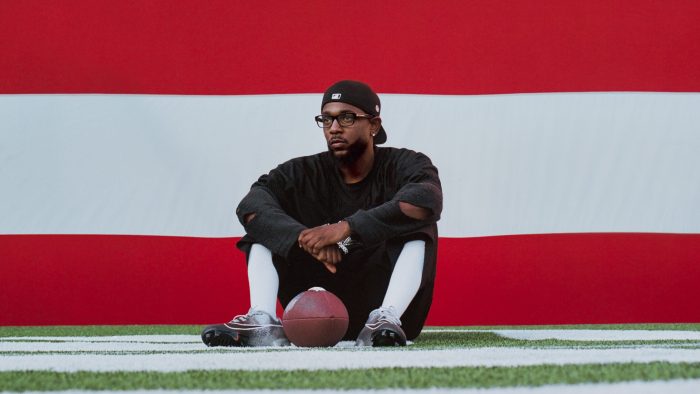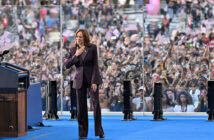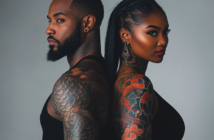The 2024 iteration of the Drake and Kendrick Lamar rap battle — a battle that saw Lamar spend the summer eviscerating his opponent with an avalanche of songs that ranged from scathing to haunting to chart-topping — started with a song called “First Person Shooter” that had Drake and J. Cole saying they were “big as the Super Bowl.”
On Sunday, Lamar took one final victory lap around his rival by announcing that he would perform at the Super Bowl LIX halftime show in New Orleans on Feb. 9, 2025. The surprise is a final, definitive reminder that Lamar has completed one of the most undeniable one-sided victories in rap history and leaving us with months to speculate and dissect what his performance will entail and ultimately mean in relation to the messages he’s conveyed in his entire career.
Kendrick Lamar’s ‘The Pop Out’ concert turned hate into loveRead now
With one 90-second teaser video for the halftime performance, Lamar put the notion of a Drake rematch to bed. Not only does the video mark Lamar as the first rapper to be the sole headline act (he previously performed a medley that included Dr. Dre, Snoop Dogg and Eminem in 2022) advertised for a Super Bowl halftime show — a declaration that he is the big dog in rap — but his comment in the video that “you know there’s only one opportunity to win a championship, no Round 2s” is a direct jab at Drake’s recent social media post quoting 2004 Detroit Piston Rasheed Wallace saying, “We will win Game 2.” If Drake wants to get his lick back, it seems that Lamar is content with letting the fireworks from a Super Bowl halftime performance drown out the sound of retaliatory fire.
Yes, Lamar is moving on from this generation’s Great Rap Feud, but not before having hundreds of millions of people sing along to “Not Like Us,” the battle’s climactic diss record (complete with the intriguing possibility of New Orleans native and Drake mentor Lil Wayne joining Lamar on stage … that can’t happen, right?). That moment will prove to be the final nail in a coffin that had seemingly been buried under thousands of pounds of Billboard-topping dirt.
However, that isn’t the only reason “Not Like Us” is the most interesting aspect of Lamar’s Super Bowl halftime show. Any Super Bowl halftime show comes with the backdrop of the original call to action from Jay-Z and Roc Nation in their mission statement about what they want to accomplish with the artists who perform. In 2019, Roc Nation was brought on to produce the halftime show to “amplify the league’s social justice efforts,” according to the NFL. Yet, the shows have failed to do that. Usher and The Weeknd, et al., have been entertaining, but the social justice message has been lost.
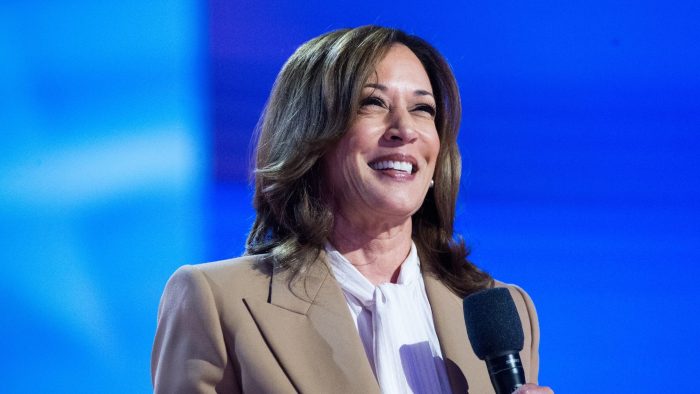 Kamala Harris gets her hip-hop close-upRead now
Kamala Harris gets her hip-hop close-upRead now
Lamar is among the most socially aware mainstream rappers; his music is full of messages about social justice issues. “Alright,” for instance, was a rallying cry during the height of the Black Lives Matter movement protests in 2015. And while “Not Like Us” is a Drake diss, it’s also become something much bigger. The song is about appropriation and Black folks reclaiming art and culture from outsiders who only want to siphon off the brilliance for their own personal gain. It’s a hell of a message to relay for a celebration of a league with a troubled history with social justice efforts. While “Not Like Us” will be a thunderous celebration of Lamar’s defeat of Drake, the biggest challenge will be to make sure the overall message doesn’t ring hollow as it’s performed in celebration of an institution that has so many aspects that act as an antithesis to the song’s meaning.
The league is still facing a wrongful termination lawsuit from journalist Jim Trotter, whose contract was not renewed after he questioned NFL commissioner Roger Goodell about diversity in the NFL. There’s also former Miami Dolphins coach Brian Flores discrimination lawsuit regarding the league’s coaching hires (the six Black coaches in 2024 doubled the number of Black coaches the league had last season). And the league has still never answered for its treatment of former San Francisco 49ers quarterback Colin Kaepernick, who was essentially exiled after kneeling for the national anthem in 2016.
Lamar will have a tightrope to walk in his performance. He can’t tamp down his message for a league that has never seemed invested in hearing lyrics such as “once upon a time, all of us was in chains” on its main stage. For Lamar’s part, he seems primed to make a statement: “Rap music is still the most impactful genre to date,” Lamar said in the news release for the performance. “And I’ll be there to remind the world why. They got the right one.” Lamar has to be his creative, often-disruptive self, and it’ll be interesting to see where that falls in relation to the NFL’s comfort. If Lamar’s past performances on big stages are any indication — his 2016 Grammy performance staged in a prison set comes to mind — he will find a way to stay true to himself in front of the largest crowd he’s ever rapped for.
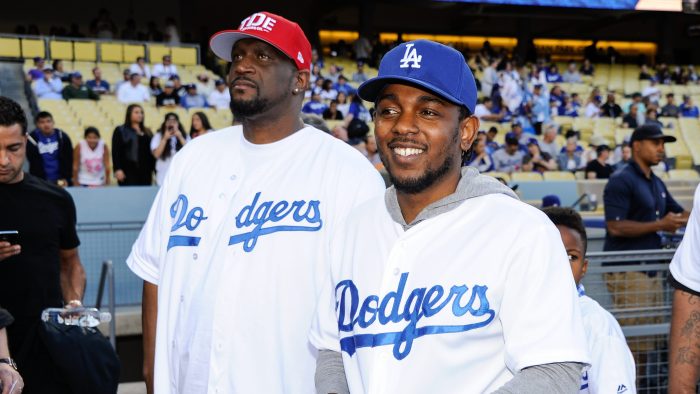 Kendrick Lamar’s ‘Not Like Us’ could be the next great sports anthemRead now
Kendrick Lamar’s ‘Not Like Us’ could be the next great sports anthemRead now
In his battle with Drake, Lamar’s Super Bowl halftime show will be a fitting full-circle high-step to the end zone. There’s no coming back in a battle where the highest-rated sporting event of the year will feature tens of thousands of fans dancing and singing about your metaphorical demise. But as big as that decisive win is, it’s merely a part of the reason Lamar’s show can make for something special.
Lamar can say so much more and make his performance bigger than a means to the end of a rap feud. And if there’s anything we know about the MC from Compton, California, it’s that he, more often than not, finds a way to add impact to any artistic endeavor. This is his biggest stage yet. And it’s hard to imagine him missing any opportunity to make it count.
David Dennis Jr. is a senior writer at Andscape, and the author of the award-winning book “The Movement Made Us: A Father, a Son, and the Legacy of a Freedom Ride.” David is a graduate of Davidson College.
